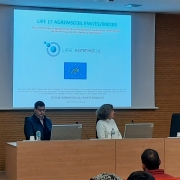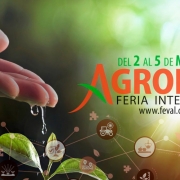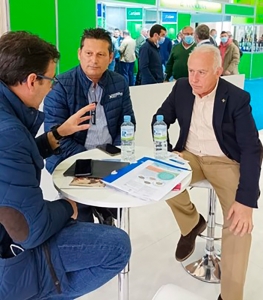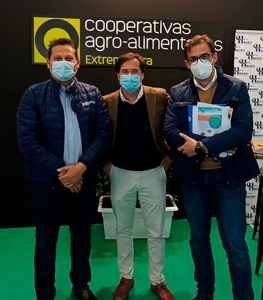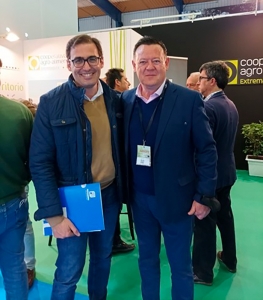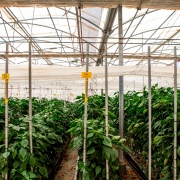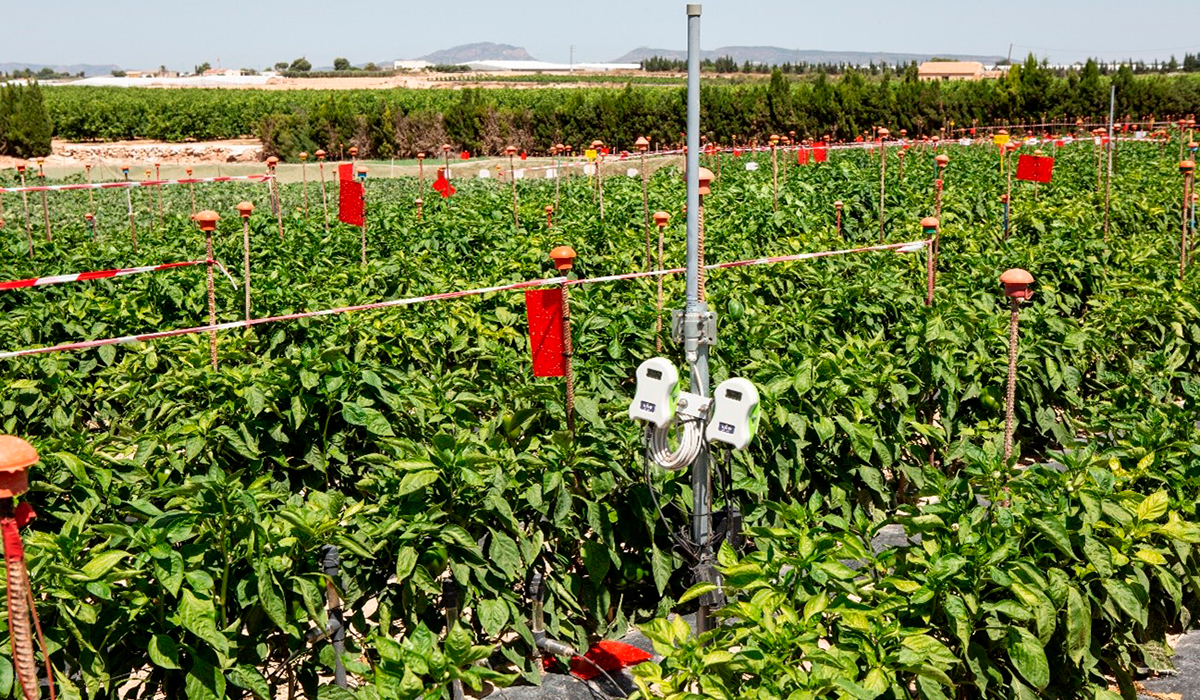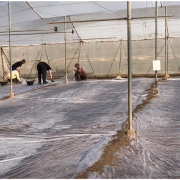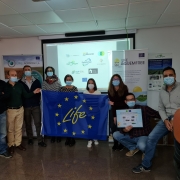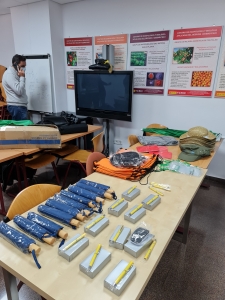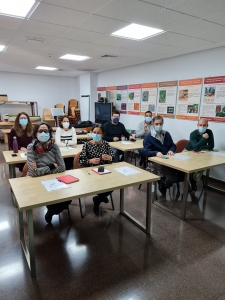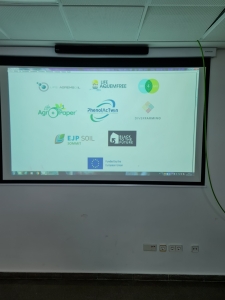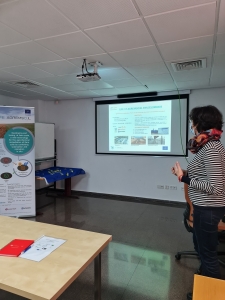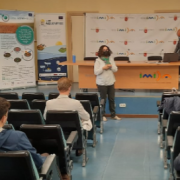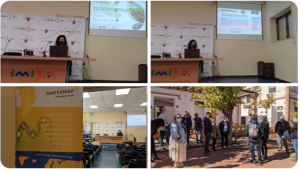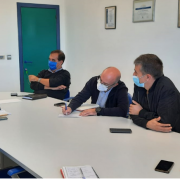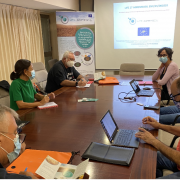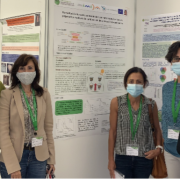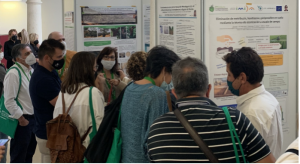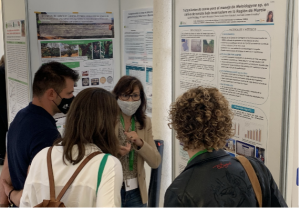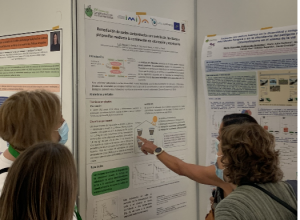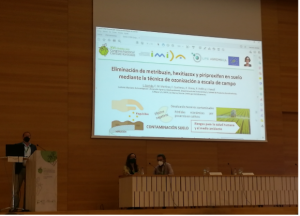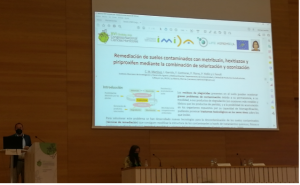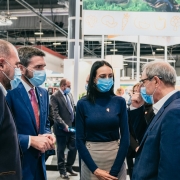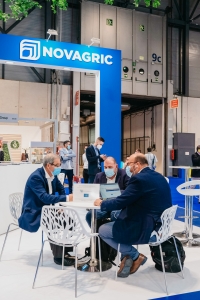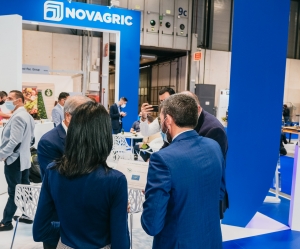The project LIFE Agremso3il aims at the remediation of pesticide residues in farm soils using a combination of two technologies: ozone and solarization.
In June 2020, the AGREMSO3IL prototype was transferred from Torreblanca experimental farm to “Cuesta Mula” pilot farm in Águilas (Murcia). This commercial farm is placed in a representative area where tomato is a traditional important agricultural product, and belongs to the co-operative Expoáguilas, formed by 70 farmers.
Two essential developments of the project were carried out in the pilot farm in order to test and demonstrate the prototype operation and performance in real farm conditions. The AGREMSO3IL system is applied in two phases. Firstly, before the crop is planted, ozone is applied together with solarization during 40 to 60 days. The soil surface is covered with a polyethylene film and ozone is applied using pipes placed both on the soil surface and buried 10 cm into the soil. Then, ozone is supplied in the irrigation water, along the crop cycle.
The first trial was conducted in a 1,000 m2 greenhouse under plastic, starting with the solarization phase on July 8th. The cultivation phase of tomato crop started in September 2020 and lasted until April 2021. The preliminary results show that the application of AGREMSO3IL produces the degradation of pesticide residues in soil about 63%, when the elimination of these pollutants in the control soil (without any remediation treatment) was insignificant. The remediation effect of AGREMSO3IL is mainly due to the high oxidative power of ozone together with the high temperatures reached under the plastic film.
Regarding the effects on soil microbiota, the application of ozone in irrigation water favoured almost all microbial groups, perhaps by enhancing the degradation of compounds present in the soil matrix that microorganisms could assimilate easily. Likewise, some enzyme activities were enhanced by the ozone treatment, thereby favouring biogeochemical cycles. The application of ozone in irrigation water affects the nutritional, physiological, and yield status of tomato plants. Some of these effects are positive, since the fruits produced with ozone treatment are slightly better quality than those produced by the control.
The second demonstration activity started in May 2021 in a plot under net located in the same farm. After the solarisation + ozonation phase, the new tomato crop was planted in July. The effects of the treatments are now under monitoring up to the end of the season, foreseen in May 2022.
The results obtained by the project have shown that the AGREMSO3IL system produces the degradation of the pollutants accumulated in the soil for years in a notably shorter time, reducing threats and risks to environment and human health.
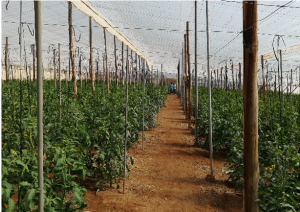
LIFE Agremso3il – Tomato crop in cultivation phase
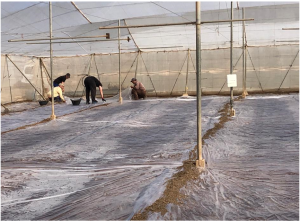
LIFE Agremso3il – Preparation works of solarization/ozonation phase

